Torpy at Large: Affordable housing crisis brings a room with a PU
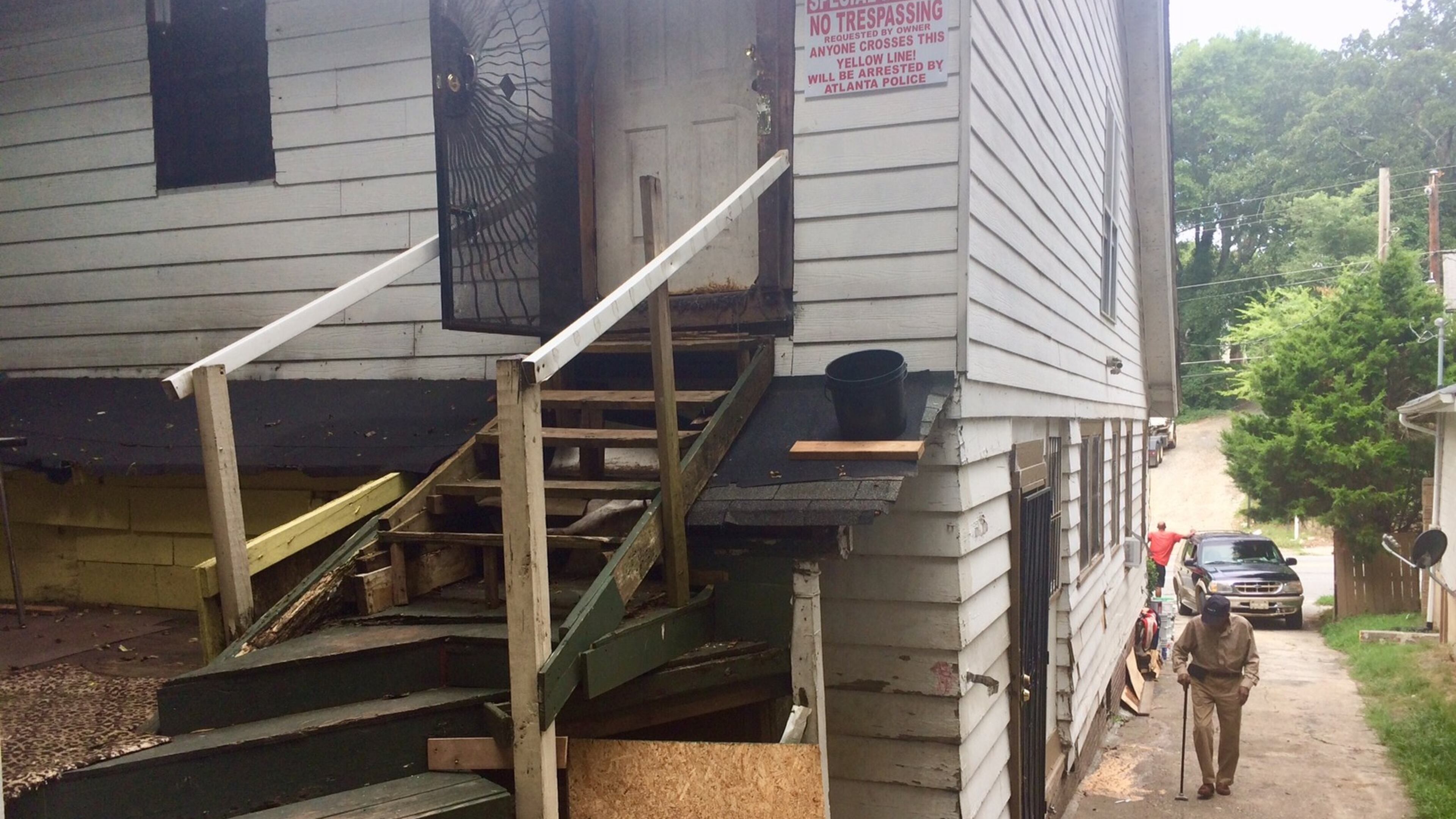
Atlanta is a city on the grow, with gleaming offices, urbane cafes and tony apartments popping up all over. We hear lots about that trajectory because the city loves to puff out its chest and boast about being an International City.
And then there’s 575 Joseph E. Lowery Blvd., a forlorn property that would make for the perfect chapter about Atlanta’s have-nots in a rewrite of “A Tale of Two Cities.” It’s a snapshot of the bottom rung of the affordable housing crisis.
The unassuming two-story house with a ramshackle structure out back is home to 19 people in 14 rented rooms, according to the narrative report, personally filled out by Atlanta police Maj. Rick Mason, who heads the city’s codes inspection department and seems to take such squalor personally.
B.L. Cantrell, the genial and spry 93-year-old manager of the property, begs to differ. We’ll get to his explanation later.
Let’s start with Mason’s initial impression of the basement, reduced to writing, during a July 19 inspection:
“The smell of mold/mildew was overpowering. The kitchen was 5 feet by 6 feet and contained a stove, sink and refrigerator. They were filthy. The bathroom had a sink, but the toilet had been removed and was laying on its side on a mound of dirt. There were so many tiny black flies, it was difficult to (breathe) without inhaling them. The room had water/sewer on the floor and gave off a lasting stench.”
An occupant, who lived in one of four basement rooms, had called to report the deplorable conditions, saying a mentally challenged woman there needed help.
"I've been on 2,023 search warrants, and that's the worst house I've ever been in," Mason said this week after a city appearance on the case. "The worst occupied house," he added, correcting himself.
“There are a lot of rooming houses out there, but they’re not farmed out to so many people,” he added. “Fifteen people living with one kitchen and one bathroom, not to mention all the visitors.”
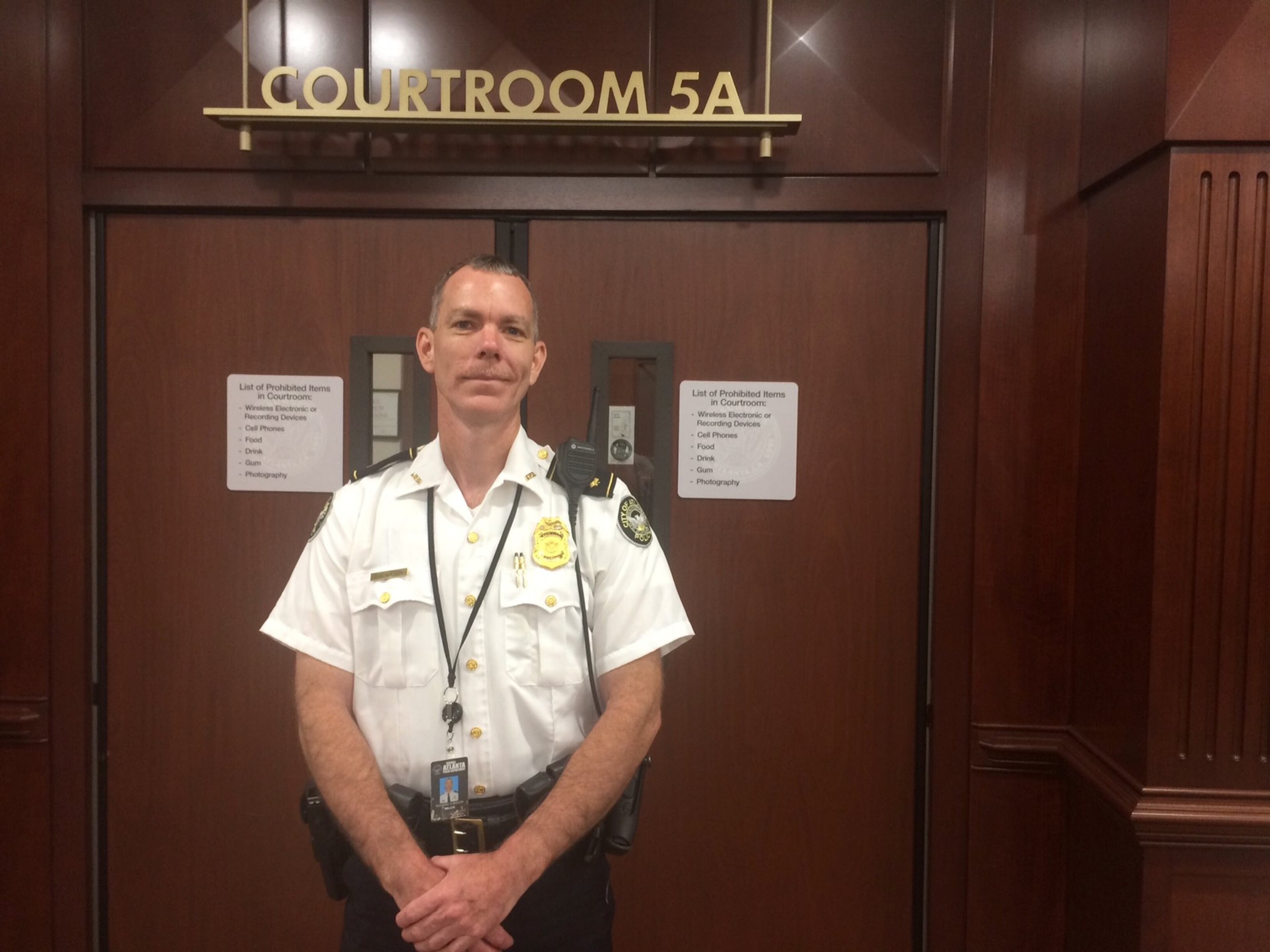
According to his report, Mason interviewed about 10 people there and determined the proprietor pulled in at least $2,500 a month, perhaps more.
The judge said the residents must move in 30 days. Mason said he brought in representatives from the state, Fulton County and the city to help the residents find a new place.
Rooming houses, which are widespread across the city and generally illegal (just seven in Atlanta are legal), provide a safety net for those on the margins of society often just hanging on. A place that provides a $100-a-week padlocked room might be the only thing separating the occupants from the streets.
They often catch the ire of neighbors who see them as run-down magnets for drunks and drug addicts, the nearly homeless and the unstable.
Mason, a 26-year APD veteran, came into this mess because in 2012, Atlanta's codes department, a civilian operation, was put under the command of the Police Department.
Earlier this year, Mason, who had earlier headed the narcotics unit, got tabbed by the chief to head up codes inspections.
"I was shocked," he told me. "I see myself as a crime fighter. I asked the chief if she was putting me out to pasture. She said, 'No. Just go out there and do what you do.' "
So, after digging into how the department runs, “I found there were so many things that seemed broken.”
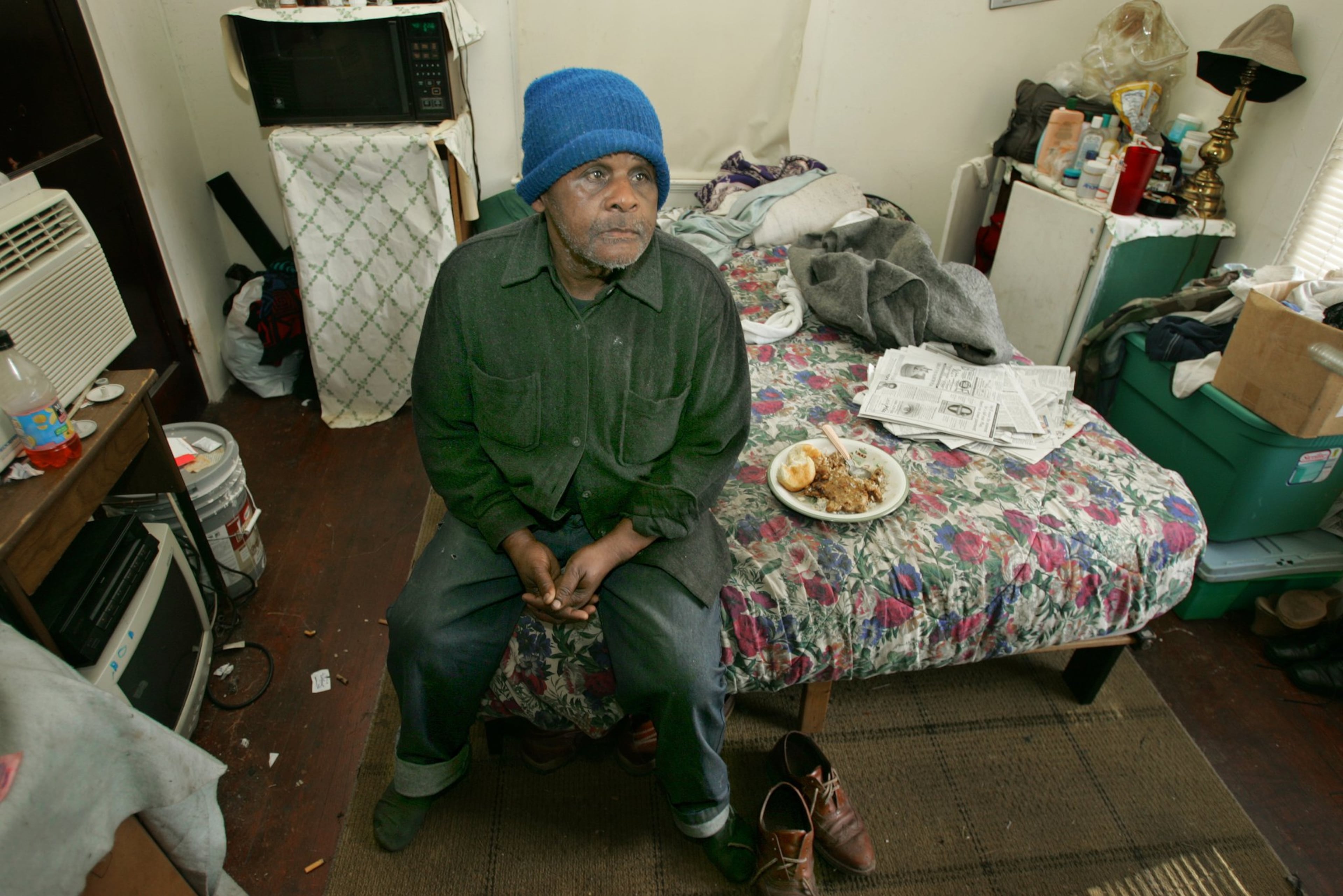
Basically, it was Government Paralysis 101: One bureaucratic silo had to wait for the silo down the hall to sign off on a case before anything could get done. Abandoned houses is his pet peeve, as it has been for many others in city government. Abandoned houses breed crime, bring squatters, allow dumping to flourish and generally destroy neighborhoods.
Thousands are owned by speculators and nameless LLCs and are difficult to determine who is the owner.
“On average, it takes two to 10 years to get a house torn down,” he said, “I want it to be six months.”
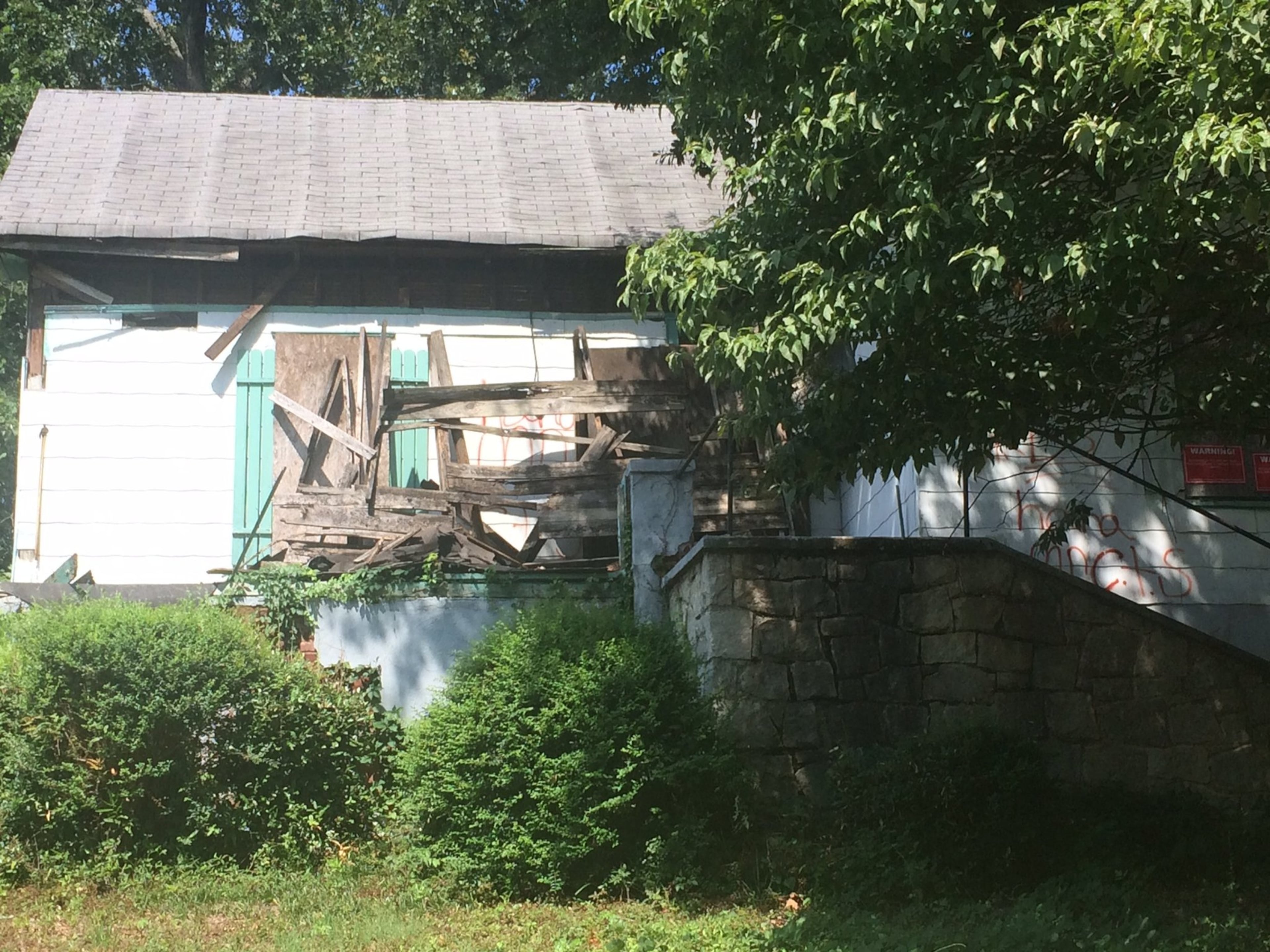
The proprietor of 575 Lowery is Benny Lloyd Cantrell, a diminutive World War II veteran of the Pacific Theater and a retired landscaper who walks with a cane.
As he left the courthouse, Cantrell said he rents only six rooms to perhaps eight people. “The rest of the people are just people who walked off the street. Ain’t no 15 people in the house.”
Cantrell said he bought the house 30 years ago but was foreclosed on and now pays $600 to the new owner and runs a rooming house. He said he pulls in $2,000 a month, perhaps $2,500 a month and pays utilities. “There’s always a bit left for me,” he said.
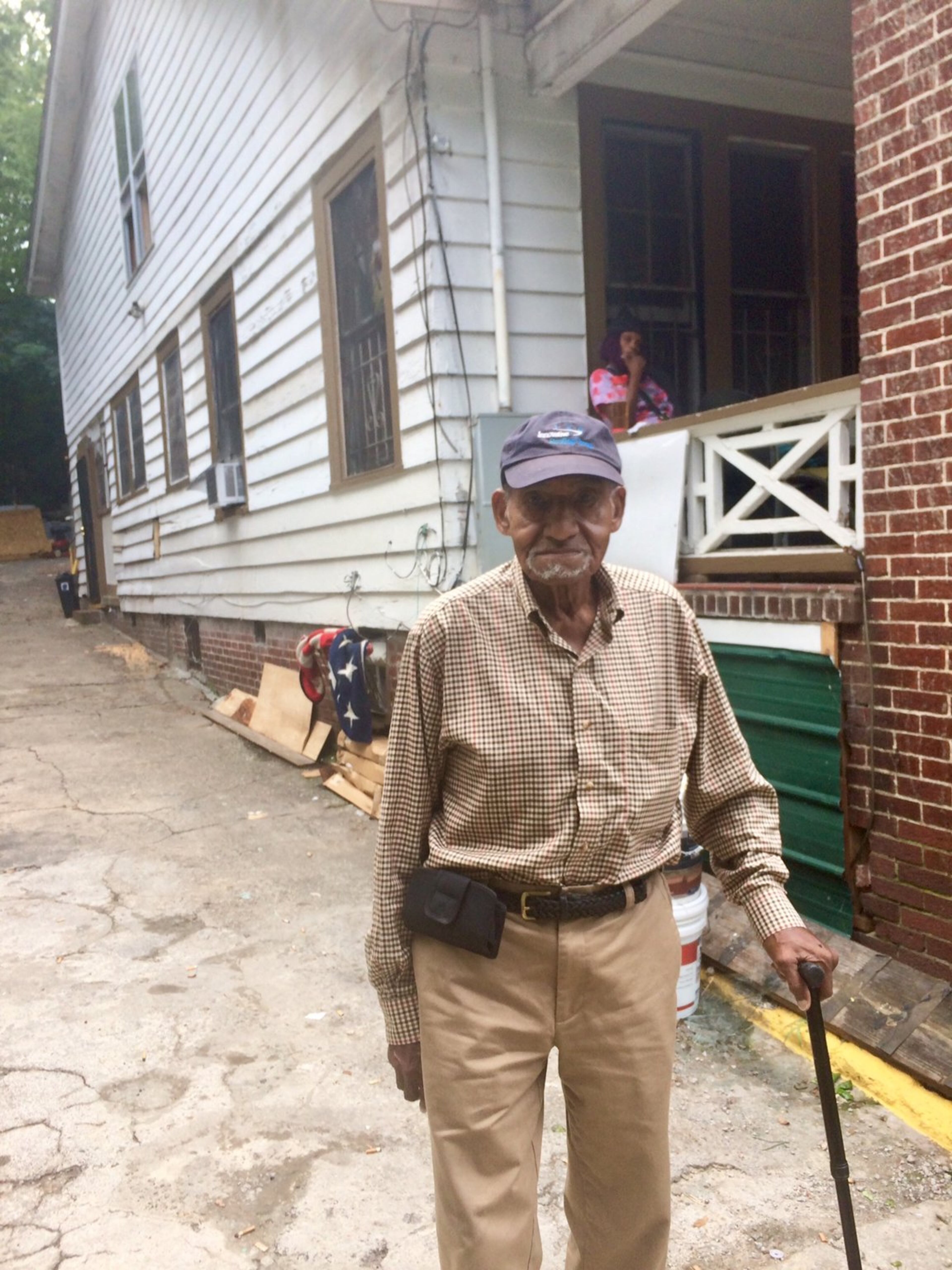
Mason said 575 Lowery owes $11,000 in back water bills.
Cantrell says he’s performing a public service, that many of these folks would have nowhere else to go without him.
“I’m no slumlord,” he continued. “I have buried at least 10 people who died in here over the years. They don’t have money. They’re my friends. I have to pay for their funerals.”

He invited me to visit the house, and later that morning, we walked through the place. The front room has two deer heads by the fireplace and a pile of upended furniture.
In the front of the house, Drew Pierce lives in a bedroom crowded with his possessions, attached to a no-longer functioning bathroom. He lives off Social Security, pays $425 a month and has lived there seven years. Moving will be hard, he said, “I don’t know what I’ll get.”
Cantrell chimed in, “People are upset. They aren’t ready to go. It’s hard to find a place. There’s a housing shortage.”
The hallways were crowded with possessions of current and past residents (including a shopping cart). The kitchen was dark, cluttered and dirty. Orange extension cords provided electricity. The house smelled musty. The upstairs, a furnace in the summer, has four rooms carved out of naked Sheetrock.
We could not enter the basement — the source of the major’s disgust. A resident down there named “Boo Boo” apparently wasn’t home or was not in the mood to receive more visitors.
Cantrell said he’ll be out of the business after the house closes. “I’m too old for this,” he said.
No doubt, other such places await to fill the slack.


